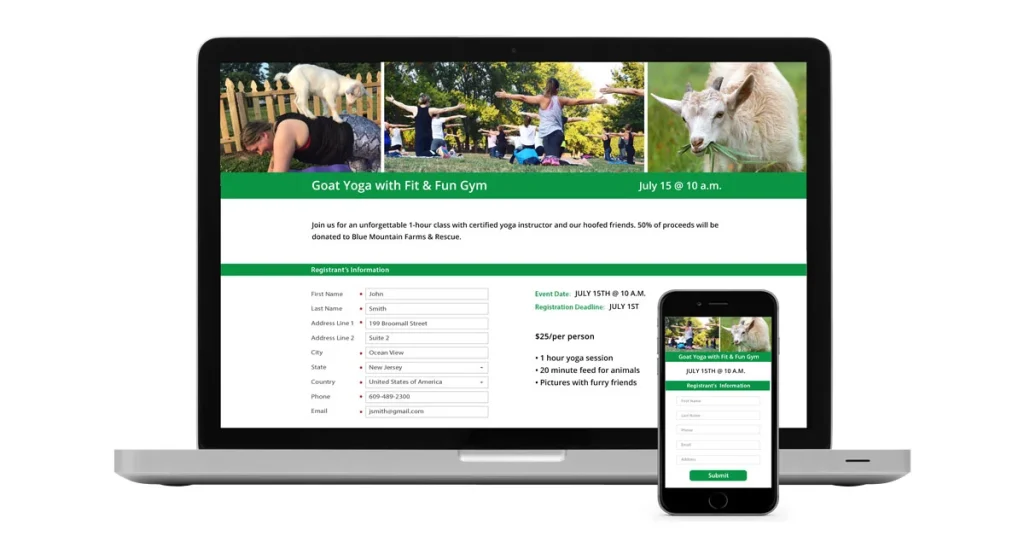
- Introduction
- 1. Set a Purpose & Goal
- 2. Define Your Target Audience
- 3. Set Your Budget
- 4. Choose an Event Theme
- 5. Set the Time, Date, & Location
- 6. Define Your Event Schedule
- 7. Set Up Online Registration & Pricing
- 8. Provide Additional Offers
- 9. Coordinate Staff & Logistics
- 10. Execute Your Event Marketing Plan
- 11. Schedule Your Follow Up Plan
- 12. Review Results & Debrief with Staff
Start using Member Solutions today
- Lorem Ipsum is a dummy text
- Lorem Ipsum is a dummy text
- Lorem Ipsum is a dummy text
Easy 12-Step Event Checklist for Planning Success
Whether you’re new to event planning or you’re a seasoned professional, an event checklist can help you reduce stress and delight attendees with an exceptional experience. We’ve identified twelve simple steps to the event-planning process that you can follow to execute a successful event of any size for any industry.
1. Set a Purpose & Goal
Firstly, why are you hosting this event? How many people do you want to sign up and attend? How much revenue do you want to make? Make sure to define specific, attainable objectives and the time frame in which you want to achieve them.
2. Define Your Target Audience
Secondly, who do you want to attend your event? Be as specific as possible, including their demographics, behaviors, and interests.
3. Set Your Budget
Thirdly, based on your goals, how much are you willing or able to spend on your event? Setting a budget early in the process will help you make important decisions regarding the location, schedule, and pricing.
4. Choose an Event Theme
In addition, what type of theme will help you attract attendees? Consider how your theme will impact the marketing, decor, and entertainment for your event.
5. Set the Time, Date, & Location
Consider your audience and theme carefully as you choose a time and location for your event. After that, be sure to check local event listings and sports schedules to make sure your event does not conflict with another activity your target audience will be attending. When selecting a venue, think about travel times to the location, availability of public transportation, parking, and the fit with your theme.
6. Define Your Event Schedule
Tell attendees what to expect at your event. Will there be entertainment or scheduled activities? Will they have free time to network or chat with fellow attendees? Create a schedule outline that you can share with attendees before and after they sign up.
7. Set Up Online Registration & Pricing
With your budget and revenue goals in mind, set an appropriate price for your event. Create an online registration form that clearly communicates event details and pricing options. Collect contact information, permissions, and any information required to personalize the experience, such as age ranges for kids, t-shirt size, dietary preferences, premium options, and more.

8. Provide Additional Offers
What else can you offer your target audience? Consider including information about how to sign up for other upcoming events, subscribe to your email newsletter, and connect with you on social media.
9. Coordinate Staff & Logistics
Based on your schedule for the event, how many staff members will you need to on site? In other words, decide who will arrange transportation, deliveries, and other logistics. Create a day-of-event schedule to assist with coordination. Think of backup plans for in the case of delays or last-minute cancellations.
10. Execute Your Event Marketing Plan
When will you start promoting your event? What materials will you need to market via email, social media, online advertising, and through print media? Create an outline of the ways you will market your event and when each will take place.
11. Schedule Your Follow Up Plan
After the event, communicate with attendees and those who missed it, share photos and video on social media, and follow up with new business partners and customers.
12. Review Results & Debrief with Staff
Always conclude your event planning process with a debriefing to review results and gather feedback from staff and attendees. Use these insights to make your next event even more successful than the last.
